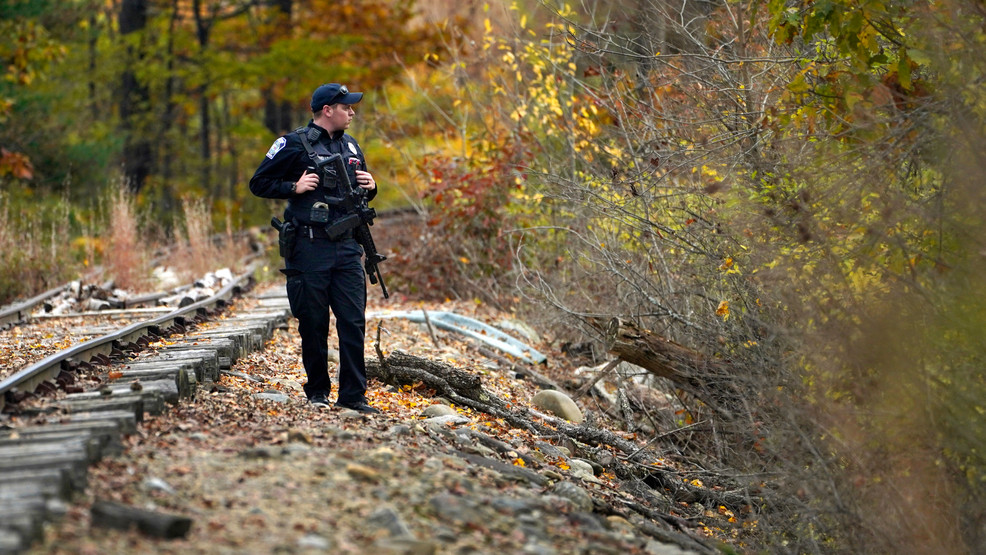
SAGADAHOC COUNTY (WGME) — New documents show law enforcement in Maine were warned multiple times about the Lewiston gunman’s deteriorating mental health and fears he could commit a mass shooting.
Those documents, obtained by the CBS13 I-Team through a public records request, show the Sagadahoc County Sheriff’s Office was reached out to by Robert Card’s family back in May.
Deputies wrote in their report that Card’s son told them his father had been “hearing voices or starting to experience paranoia” and that he started to see that decline back in January.
The family also told deputies that Card had recently picked up “10 to 15 handguns/rifles” that had previously been stored at his brother’s house.
Because the family was concerned about how Card would react if they contacted out to law enforcement with their concerns, deputies wrote that they reached out to Card’s Army Reserve Unit.
“Their plan was to sit down with Robert in the near future and see if they could get him to open up about what has been going on,” the responding deputy wrote.
“We never had any dealings with Robert Card before this,” Sagadahoc County Sheriff Joel Merry told the I-Team Tuesday. “There are many different types of threats, many different types of situations that we get called to. Each one is treated differently. I don’t know if there’s any one standard format. “
Then in September, the sheriff’s department received a request to do a welfare check on Card from that same Army Reserve unit in Saco.
According to statements from members of the unit, they became concerned after Card made threats to “shoot up” the facility and that he was having “psychotic episodes where he is hearing voices that are insulting him calling him a pedophile.”
Those threats and concerns stemmed from an incident involving Card in July at Camp Smith in New York where his reserve unit was participating in training.
After he began acting erratically, Card was taken to a local psychiatric hospital in New York for evaluation.
“During the four hours I was with Card he never spoke, just stared through me without blinking,” one of his unit members wrote in a statement.
He spent 14 days at the facility but was then released on August 3.
On September 15 and 16, a Sagadahoc County deputy tried to make contact with Card at his home in Bowdoin to conduct a welfare check.
On the first day, the deputy wrote Card wasn’t home and that he would ask the evening shift to check on him.
The next day, deputies returned to Card’s home to find his Subaru Outback, which Maine State Police say he used during the Lewiston mass shooting, in his driveway.
Those officers still weren’t able to make contact with Card.
“Card could be heard moving around inside the trailer but would not answer the door. Due to being in a very disadvantageous position we decided to back away,” the deputy wrote in his report.
CBS13 I-Team Reporter Dan Lampariello: “Should they have followed up after that?”
Sagadahoc County Sheriff Joel Merry: “You know, with that we made contact with the family, made contact with the Army Reserve unit and there was a lot of contact there telephone and in-person. We did have some assurances with the family and from the Army Reserve and so, at that time, I think the deputy felt that the situation was handled appropriately and he made a good effort to document everything he had done at that point.”
Lampariello: “But when you have a concern about possible threats, should you leave that up to the family to take care of?”
Merry: “Sometimes that works very well. Oftentimes, families don’t want their loved ones or individuals to go into the system. They may not want them involuntary committed.”
While deputies failed to speak with Card face to face in September, they did speak with his brother, who made assurances that they would work to get Card’s guns away from him.
“He told me between him and his father they would work to ensure that Robert does not have access to any firearms,” the deputy wrote. “They have a way to secure his weapons.”
Deputies also sent out a state-wide tele-type alert, known as a File 6, after they couldn’t locate Card.
It warned law enforcement across that state about Card’s psychotic episodes and that he’s known to be armed and dangerous.
That alert was canceled on October 18, just one week before the mass shooting in Lewiston.
“This has just been a real tragedy,” Merry said. “And my heart does hurt for our community.”
